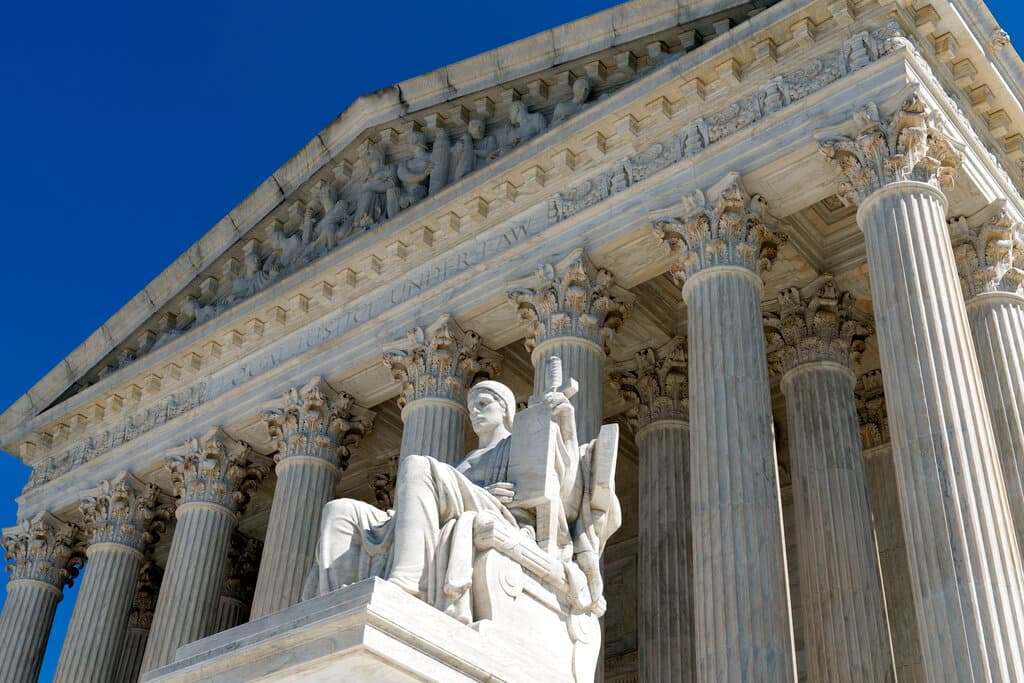Supreme Court Signals Intent To Take on Social Media Censorship
The court’s call for the solicitor general’s opinion, coupled with a circuit split, signal that the court is likely to take on the question in its next term.

The Supreme Court is asking the Biden administration to weigh in on the question of whether social media behemoths have an obligation to guarantee free speech to users.
The Nine sent their request to the solicitor general as they face two petitions on the issue, in NetChoice v. Paxton and Moody v. NetChoice. Both cases involve state laws that would regulate social media platforms with the aim of preserving open public forums.
The law in question in Moody is Florida’s SB702, which requires platforms to disclose when and how they censor posts, as well as host — without shadow banning — unpopular content and posts. The law in question in Paxton is Texas’s HB20, which prohibits censorship, moderation, or labeling of posts by a platform — unless the content is unlawful.
The two laws aim to curb what conservative legislators see as a bias against the right on social media platforms. In both cases, the e-commerce advocacy association NetChoice sued the states over their respective laws. Among NetChoice’s member companies are Amazon, Twitter, TikTok, Google, EBay, and Meta, Facebook’s parent company.
The cases present a circuit split — in Paxton, the 5th Circuit upheld the Texas law, whereas in Moody, the 11th Circuit struck down Florida’s.
The attorney general of Florida, in his appeal of the circuit court ruling, denounced the injunction on the state’s law. “Under the Eleventh Circuit’s reasoning, social-media behemoths have a First Amendment right to cut any person out of the modern town square, for any reason, even when they do not follow their own rules or otherwise act in bad faith,” the writ from Florida’s attorney general reads.
Under Section 230 of the Communications Decency Act, social media companies are, in most cases, not liable for posts from third parties on their platforms. Unlike traditional media publications, such as The New York Sun, social media platforms are not viewed as the “publisher or speaker” of any information posted on their websites. Only the poster can be held legally responsible for his or her content.
Traditionally, Section 230 has been used by social media platforms to take a more libertarian stance on site moderation because the corporations aren’t responsible for the posts. In the past few years, though, a climate of increasing political polarity has called this operating principle into question. Now, tech companies argue that Section 230 gives them license to establish rules for posting and moderating on their sites.
An example of such moderation occurred during the Covid pandemic, when posts that shared purportedly incorrect information were censored or marked as “misinformation” on various platforms. Another prominent example is the ban of President Trump from Twitter, Facebook, and Instagram. Mr. Trump’s lawyers have filed an amicus brief in support of the Florida petitioners in Moody.
The court’s call for the solicitor general’s opinion, coupled with a circuit split, signal that the court is likely to take on at least one of the cases in its next term. It could also consolidate them, and issue one opinion to cover both.

